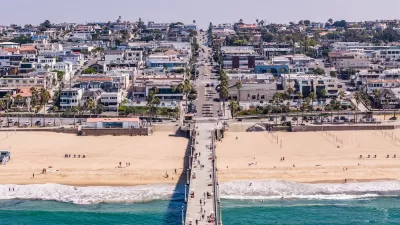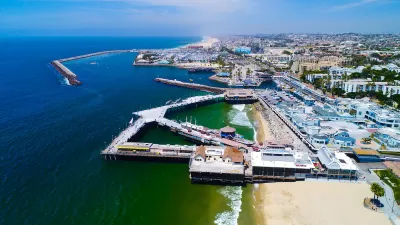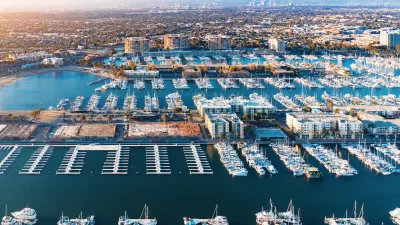The Metropolitan Beaches Commission has improved conditions and facilities at many of Massachusetts' beaches since its inception in 2006. Recently, however, the commission called for funding to be restored to pre-recession levels.
With an estimated one million residents living within a half-hour of Massachusetts' beaches, the state's coastline is a precious public and open space resource. The state established the Metropolitan Beach Commission as a funded public review board. After the commission's inception, "park conditions improved dramatically — at first. New bathhouses were built, fences were repaired or replaced, trees were planted, trash got picked up on a regular schedule," writes Renée Loth in a recent op-ed.
"But state support has been slipping since the financial collapse of 2008, and is now below the level of 2006..."
It seems that the commission is not a priority for Governor Deval Patrick, who "did not request additional funding for DCR in his $36 billion annual budget proposal last month," reports Loth. In response, "the beaches commission is proposing a $7 to $10 million increase in the entire DCR budget, enough to hire 60 full-time staffers across the state."
FULL STORY: Urban beach maintenance at an ebb

Study: Maui’s Plan to Convert Vacation Rentals to Long-Term Housing Could Cause Nearly $1 Billion Economic Loss
The plan would reduce visitor accommodation by 25,% resulting in 1,900 jobs lost.

North Texas Transit Leaders Tout Benefits of TOD for Growing Region
At a summit focused on transit-oriented development, policymakers discussed how North Texas’ expanded light rail system can serve as a tool for economic growth.

Why Should We Subsidize Public Transportation?
Many public transit agencies face financial stress due to rising costs, declining fare revenue, and declining subsidies. Transit advocates must provide a strong business case for increasing public transit funding.

How to Make US Trains Faster
Changes to boarding platforms and a switch to electric trains could improve U.S. passenger rail service without the added cost of high-speed rail.

Columbia’s Revitalized ‘Loop’ Is a Hub for Local Entrepreneurs
A focus on small businesses is helping a commercial corridor in Columbia, Missouri thrive.

Invasive Insect Threatens Minnesota’s Ash Forests
The Emerald Ash Borer is a rapidly spreading invasive pest threatening Minnesota’s ash trees, and homeowners are encouraged to plant diverse replacement species, avoid moving ash firewood, and monitor for signs of infestation.
Urban Design for Planners 1: Software Tools
This six-course series explores essential urban design concepts using open source software and equips planners with the tools they need to participate fully in the urban design process.
Planning for Universal Design
Learn the tools for implementing Universal Design in planning regulations.
Ascent Environmental
Borough of Carlisle
Institute for Housing and Urban Development Studies (IHS)
City of Grandview
Harvard GSD Executive Education
Toledo-Lucas County Plan Commissions
Salt Lake City
NYU Wagner Graduate School of Public Service





























